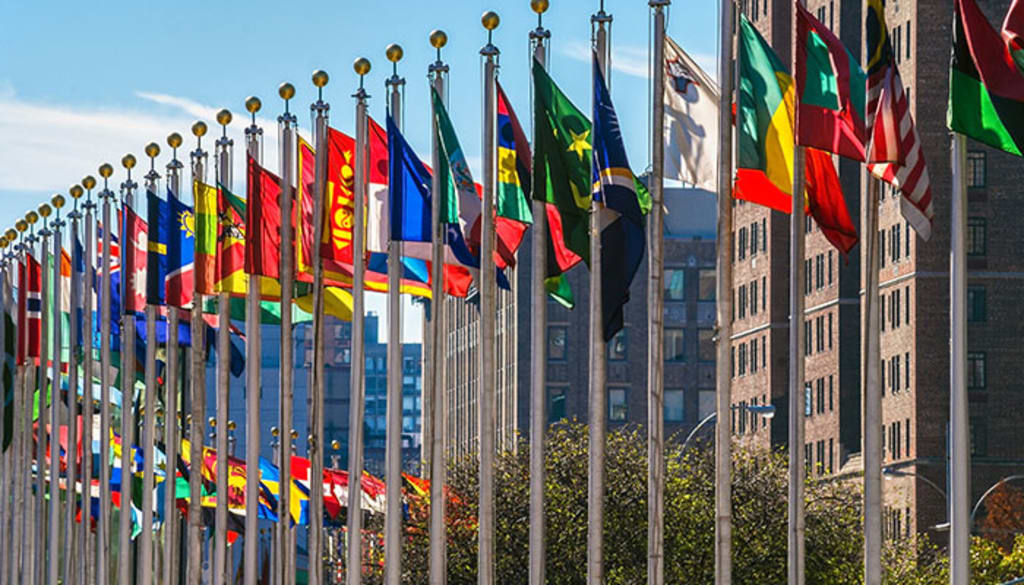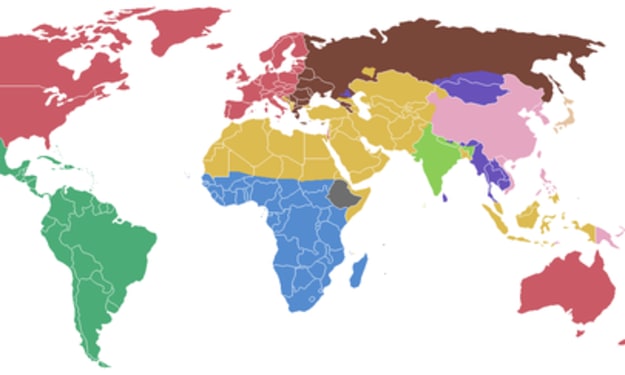
Historically Canada was a purely peacekeeping nation, often providing and volunteering large amounts of troops to U.N. peacekeeping interests. This was especially true in the beginning stages of the United Nations peacekeeping origins, evident by Canada’s contingent of troops sent to South Korea to protect the elected government there. That is the literal definition of peacekeeping, but as time went on from the 1950’s to the 2000’s the policies of the U.N. seemed to change from purely peacekeeping to peacemaking with only particular parties. For example, even as the information of genocide in Rwanda was evidentially factual, the U.N. seemed to have no interest in helping the Rwandese people. Canada was the only nation to contribute troops during the 100-day genocide and even then it was only 30 or so troops.
As well, it would seem it depends entirely on the view you want to have of both the U.N. and Canada as peacekeepers. If one views the U.N. as good and Canada actively participates, like during the Suez Crisis or South Korean election, one would be inclined to see that as good peacekeeping, and Canada as a peacekeeping nation. If one views the U.N. as a malignant force that is half incompetent, using Canada as a pawn (Canada not staying geo-politically neutral during the Cold War for example) with the manipulation that Canada is doing something peaceful and neutral, one is inclined to see Canada as a non-neutral partying actively taking a side during major conflict.
In my opinion Canada is no longer a purely peacekeeping nation just as the U.N. is no longer a purely peacekeeping body, they have both been forced to align with the times and ultimately choose to consign to the wishes of NATO as evident in the recently closed and failed peacemaking conflict in Afghanistan, or risk becoming obsolete on the international stage.
Why did Canada support the UN peacekeeping missions in the 1960’s and 1970’s?
Canada supported the U.N. peacekeeping missions in the 1960’s and 1970’s because a non-aggressive force was needed to contain the growing conflicts in the Middle East.
During the 1960’s Israel (with the manipulations of Britain and France) invaded the Suez Canal. The rest of the world (including the U.S.) saw this as an act of colonization in a time where decolonization was and still is favoured. Therefore there had to be a prevention of conflict by a separation of fighting forces over the simple observation of them, and this was achieved through the medium of checkpoints and blockades primarily but they also took charge in buffer zones. It was extremely important that the peacekeeping forces not be from any member of the Permanent U.N. Security Council due to their involvement and biases during the Cold War. The Expeditionary Force would only use self defence and would not attempt to shift the military balance between all parties involved.
As Canada was fairly efficient during the protection of the South Korean elections, and as Canadians are world-wide known as peaceful people, plus the fact that we weren’t permanent security council members, it was almost an inclination for us to join and to help hopefully spread peace as is our wont.
Canada was eventually ordered out by Egyptian president Nasser in 1967 and a subsequent war, the Six-Day War, resulted in Israeli occupation of Arab lands. There was a need and proposal for further peacekeeping now but Israel rejected it, which led into another conflict in 1973, the Yom Kippur War. New U.N. operations were instituted after the beginning of that war.
Canadian peacekeepers were also sent to the Congo from 1960 - 1964 but this was primarily providing signal officers and training Congolese forces. Africa was too fraught with danger at the time for effective peacekeeping.
To summarize why Canada joined the peacekeeping missions: They were not a member of the security council after the Cold War and therefore were seen as less biased politically (even as they technically chose the side of capitalism) during the conflict and more able to use effective military action as they were not seen as invaders or provocateurs. They also had a history from the 1950’s onwards of being able to police internal affairs of other countries with efficiency, as seen in South Korea. It seems that the age of Canadian and U.N. “peacekeeping” is over after the fact that Cyprus still lay divided.
After the fall of the Berlin Wall the opportunities for true peacekeeping (protection from invasion from a foreign occupation) dwindled down and the opportunity for Canada to be such a large contributor to U.N. detachments ultimately dropped.
Ultimately, Canada supported the peacekeeping missions of the 1960’s and 1970’s because that’s purely what they were - peacekeeping missions - and Canadians had both an inclination and a want to protect the peace around the world that we value so much in both our lives and morals. As most of the other countries with effective military might were either involved in the Middle East conflict, or members of the Permanent Security Council, a lot of eyes internationally were on Canada to come and keep the peace.
Did we play the role of peacemakers or peacekeepers? Why keep the idea of Canada being the purely neutral peacekeeper? Should we all reach for the Canadian ideal of peace achieved through the political peace talks of L.B. Pearson? Some questions are purely up to the reader yourself.
About the Creator
Hoaram
Just trying to get by doing what I have a passion for. Please consider leaving a tip if anything I say stirs something inside you.






Comments
There are no comments for this story
Be the first to respond and start the conversation.